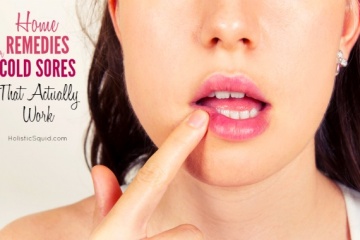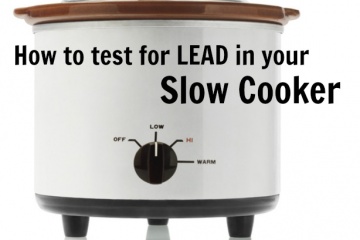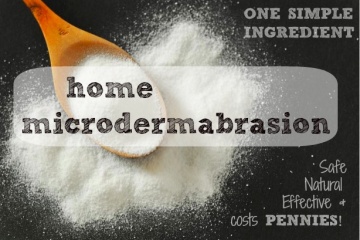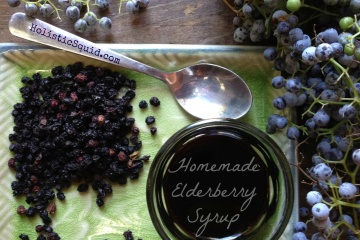
Baby in Low Weight Percentile – Bone Broth Alternatives for Vegetarians – Vaccines Wiping out Disease? – Depression and Conventional Eggs – GAPS not working – Recovery from Baby Formula
My inbox runneth over with questions from readers wondering – What would Emily do – about Real food and holistic health topics. I’ve created this Q&A to get your questions answered and for other folks to benefit from the answers too.
Who am I to know the answers to your questions?
I’m a holistic-minded mom, a sometimes beach bum, a real food foodie, a curious health researcher, and I’ve been practicing holistic and Chinese medicine for over a decade. That said, the answers here are only my opinion, and shouldn’t be construed as medical advice.
If you read something here and have your own wisdom or opinion to add, by all means, please leave a comment so we can all benefit from your experiences and perspective.
Okey dokey! Let’s dive in…
Question 1 – Baby in low weight percentile
Kris writes…
I have a 10 month old daughter that is in the lower percentile for weight. At 9 months she was just below 15 lbs. She is a very happy and active baby who has been reaching all of her milestones. Her doctor suggested I feed her rice cereal but I'd rather feed her more natural options. She is still primarily breastfed and I was just wondering what foods you would suggest that could help her gain some weight.
Hi Kris – First of all, I'm curious… Has your daughter always been on the small side? Are you and her dad relatively smaller? Is she long and thin or just generally small? The answers to these questions will help to explain whether or not her weight is truly a concern or actually just normal for her.
The WHO chart indicates that an average 9-month-old baby girl weighs about 18 lbs. and is about 27.5 inches long. The lowest percentile for that age is 15 lbs. and 25.5 inches, and the highest is about 23.5 lbs. and 29.5 inches. If she's always fallen in the lower percentile, then that's normal for her. If she was previously in high percentile and has dropped significantly, then it may be of concern.
As for increasing caloric density for her, I would focus on adding nutrient dense fats rather than rice cereal which is just a ‘meh' food. Coconut oil, avocado, and egg yolks from pasture-raised hens are good to start. You can start to introduce simple soups and stews made with bone broth and grassfed meat (including the fat) too.
Question 2 – Healing alternative to bone broth for vegetarians
Caroline wants to know…
If you are vegetarian, what do you substitute for bone broth for healing the gut?
Hi Caroline – Good question. There really is no ideal vegetarian substitute for bone broth when it comes to gut healing. If it is absolutely out of the question to consume bone broth, I would be sure to load up on cultured foods and/or a probiotic supplement; avoid gut damaging foods like whole grains, nuts and beans that haven't been properly soaked, sprouted, or soured; only consume fermented soy (as the phytic acid in unfermented soy can wreak havoc on digestion), and get plenty of fat by consuming coconut (oil, cream, milk, and meat from coconuts), well-sourced palm oil, and avocados daily.
Question 3 – Vaccines wiping out disease?
Leah is curious…
Why are we seeing certain diseases eradicated or very minimal these days? Many say it is because of the vaccines for these diseases. What are your thoughts and/or do you have any trustworthy resources discussing this issue? It always seems to be a hot one when it comes to the vaccine topic.
Hi Leah – This is a great question, and I think I'll add it to my list to write into a blog post. The short answer is that there is no one answer. Many gung-ho pro-vaxxers love to talk about how vaccines have eradicated disease, but this is not necessarily the case for all of the diseases for which there are shots.
In many cases, decline of diseases are actually caused by better hygiene, sanitation, and access to nutritional food. Sometimes the reporting practices are to blame. When you dig a bit deeper than the commonly presented statistics, you'll often find that many diseases sharply declined significantly before the vaccines were introduced.
Even for polio – for which it is commonly assumed that the vaccine has saved us from the epidemic – it's not necessarily the case. In the UK, the incidence of polio deaths were at their pinnacle in 1950. Six years later, it had declined by 82% – just at the beginning of the polio vaccine campaign.
Does this mean that the vaccines are pointless? Probably not. Does it mean that they have been the savior of humanity? I'm not betting on that either.
My best advice is to do your own research, consider the sources of info you hear and find, and then make up your own mind. One book I really like as a reference is The Vaccine Guide by Randall Neustaedter, a homeopath Chinese medicine practitioner, and my professional mentor in holistic pediatrics.
Question 4 – Depression and conventional eggs
Sara writes…
I eat a 95% WAPF diet and am usually a pretty happy go lucky person. One thing I eat daily is four eggs. Recently I had to get storebought (just your typical cheap ones) eggs as my farmer is out of the free range and ended up getting really depressed. My husband cracked a joke saying “Maybe it's your eggs?”. After that we got our hands on some pasture eggs sure enough depression went away.
Three days ago we ran out of the pastured ones so I had the hubby pick up organic free range, all the bells and whistles, storebought eggs and now the depression is back again.
My question is why would the store bought eggs (even the expensive ones albeit) cause depression? Absolutely nothing else has changed in the diet or exterior circumstances in my life.
Hi Sara – Thanks for sharing your interesting experience. It's certainly possible that the regular organic hens were fed something (soy or corn) that does not work well in your body. If you primarily eat a traditional foods diet, you might not be aware of sensitivities that you have to these substances that you don't eat on a regular basis. Needless to say – stick with your farmer!
I'd be interested to hear if any other readers have had a similar experience…
Question 5 – GAPS not working
Quianna writes…
My two year old has been “diagnosed” with leaky gut via IgG testing and a stool analysis. We sought help because of his eczema and digestive issues that he’s had since birth. We started the GAPS diet two months ago. We never saw any improvements but things actually got worse. He broke out in full body hives on day 20 and his eczema has gotten significantly worse and its spreading. His digestion has not improved and is actually worse too. His sleep went from great to really poor, waking multiple times in the night and not sleeping long at all. I feel so bad for my kiddo and I'm so lost on what to do now or who to seek help from. We are moving on from GAPS since it made things worse and is hard to implement but I don't know what should be next on the list to try. Any thoughts would be so much appreciated.
Hi Quianna – Sorry to hear about these challenges that you're experiencing. For those who may not be familiar with the term, GAPS stands for Gut and Psychology Syndrome and is a diet protocol designed to heal the digestive system, restore normal gut/brain activity, and thereby resolve a whole host of associated health issues. For more about GAPS, check out this post.
Regarding your two year old, it sounds like he needs a more slow and customized approach. What part of GAPS was setting him off? The cultured foods? Perhaps they were creating a healing crisis and need to be introduced more slowly. If it was the broth, did you test to see if he was sensitive to all bone broth – poultry, beef, lamb, pork, etc? Sometimes in extremely sensitive individuals, the approach needs to be controlled on a micro level, but the general concept of healing the gut is essential.
You may want to consider working with an experienced GAPS practitioner. Also, I'd be happy to work with you to add Chinese herbs for healing his digestion and resolving the eczema. You can read about my distance consultations here.
Question 6 – Recovery from baby formula
Jennifer writes…
My twins were born very early and are having to get human milk fortifier added to my breast milk (for added calories) during their stay in the hospital. I looked at the ingredients of this addition and it is terrible and even includes soybean oil. Is there anything I can do once my babies are home to help lessen the negative effects of these terrible ingredients on their delicate little systems? They have been getting probiotics since they were born and I faithfully take them each day also. Thank you so much.
Hi Jennifer – While the components of human milk fortifier and formula are definitely not ideal real food ingredients, it's important to remember that when it's a matter of survival, these products can also be a blessing. A friend of mine who lives in Kenya has shared some great examples of how she's seen formula save lives. This isn't to minimize your concerns, only to provide a small reminder in case you're despairing.
Assuming you'll be exclusively BFing when your babies get home, I recommend that you continue supplementing with probiotics and then see how they do. If they show signs of any compromised health, seek out the support of an experienced holistic pediatric practitioner as unnecessary antibiotics, steroid treatments, and other heavy handed western intervention can cause more harm than good in many cases.
If you'll be supplementing at all when you are home, read this post on choosing the best formula for your babies.
When it comes time to introduce your little ones to solid food, read this post.
Got questions about real food or holistic health and wondering W.W.E.D.?
If you have a question for me, please first use the handy dandy search bar at the top righthand corner of this site. If that doesn’t give you the answers you need, email [questions at holisticsquid dot com].
I can’t guarantee that I will get to every single question, but I will do my best (with a priority for questions that will serve the most of the Holistic Squid community).
Also, keep in mind that I cannot and will not give you medical advice over the internet. It’s inappropriate and unethical. If you want my medical opinion about a health or nutritional issue for you or your child, I take virtual patient consultations on a limited basis via phone or Skype; You can find out more about my distance consultations here.
Got answers not included here?
Please leave them in the comments below!










For the baby with eczema and the GAPS diet not working… I went through the same thing. I went paleo and tried GAPS and got worse. I discovered I am sensitive to salicylates. I get hives regularly when I eat high sals food. My suggestion is that a lot of eczema sufferers have the same problem. She should explore a low sal sire and see how he reacts. Another helpful idea is when he is itchy but him in a high concentrated Epsom salt bath. It helps the liver detoxify the chemicals. You’ll see fast results from that.
Hi Emily!
I love your website!!! I recently came across a post you had about the blue vein that some children have above the bridge of their nose (sugar bug). My son, who is 15 months has that ;( He has only had sugar probably twice in his life so far and we try to limit our kids intake overall anyway. Since this means that he may be extra sensitive to sugar, does that include natural sugars like honey, coconut sugar, and maple syrup?
Thank you for all you do!
Happy New Year!
Rachel
Hi Rachel,
Thanks for your question and the answer is yes, if they are sensitive to sugars, natural sugars can still affect them even though natural sugars do tend to be more nutrient dense. But there are degrees and each child is different so you’ll have to find what works for your son by watching his intake of everything and how he reacts to it. Hope that helps!